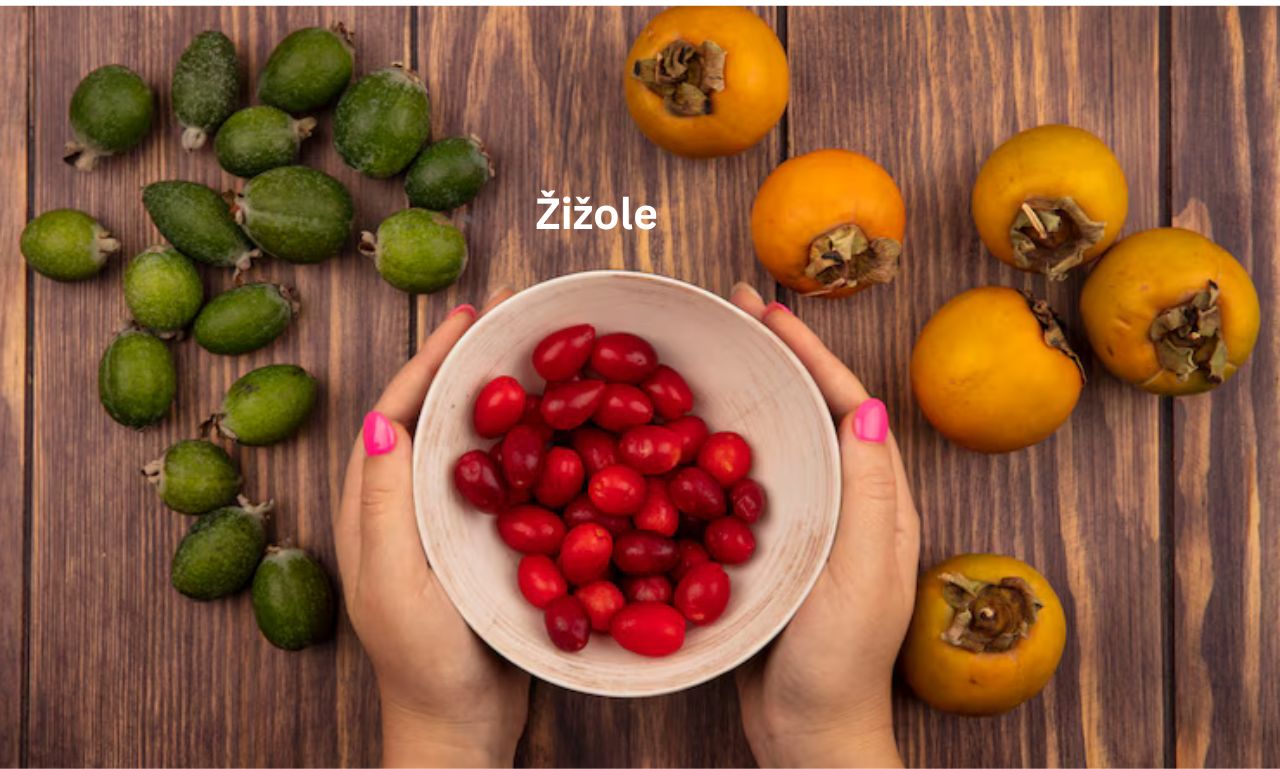In the world of natural remedies and traditional fruits, žižole—also known as jujube or Chinese date—stand out as a unique and powerful fruit. Popular in Mediterranean and Asian regions, žižole are small, reddish-brown fruits known for their sweet taste, chewy texture, and wide range of health benefits.
Whether eaten fresh, dried, or used in tea, žižole are becoming more appreciated for their medicinal properties and culinary versatility. In this article, we’ll explore everything you need to know about this fascinating fruit.
What Are Žižole?
Understanding the Žižole Fruit
Žižole (pronounced zhee-zho-le) are the fruits of the Ziziphus jujuba tree, a plant native to China but widely cultivated across Asia, the Mediterranean, and parts of Europe. In English, žižole are commonly called jujubes or Chinese dates.
They start out green and turn a deep red or brown as they ripen. Fresh žižole have a crisp, apple-like texture, while dried žižole resemble dates in flavor and chewiness.
Nutritional Value of Žižole
Packed With Nutrients
Ži-žole are not only delicious but also incredibly nutritious. Here’s what makes them stand out:
-
Rich in Vitamin C – Boosts immune function
-
Antioxidants – Help fight oxidative stress
-
Dietary Fiber – Aids digestion and promotes gut health
-
Flavonoids – Anti-inflammatory and protective against chronic diseases
-
Potassium – Important for heart and muscle function
One small serving of dried ži-žole provides essential micronutrients without high calories or fat, making them a perfect healthy snack.
Health Benefits of Žižole
1. Supports Immune System
The high vitamin C content in ži-žole makes them great for strengthening the immune system. Regular consumption can help reduce the frequency of colds and improve overall resilience.
2. A Natural Sleep Aid
Žižole have long been used in traditional Chinese medicine to promote sleep. They contain natural compounds that have a calming effect on the brain, which may help relieve anxiety and improve sleep quality.
3. Boosts Digestion
Thanks to their fiber content, ži-žole are excellent for supporting a healthy digestive system. They can help prevent constipation and maintain a balanced gut microbiome.
4. May Enhance Skin Health
With their antioxidant properties, ži-žole can help protect the skin from aging, dryness, and environmental damage.
5. Energy Boosting
Ži-žole are naturally sweet and provide a slow, sustained energy release, making them a great option for a midday snack without the crash that processed sugars often cause.
How to Eat Žižole
Fresh Žižole
Fresh ži-žole are crispy and slightly tart. They can be eaten raw like apples—just wash and bite in. They make a refreshing snack or a tasty addition to salads and yogurt.
Dried Žižole
Dried ži-žole are soft and chewy with a flavor similar to dates or figs. They’re often used in:
-
Teas and herbal infusions
-
Baking (e.g., in bread, cakes)
-
Cooking in rice or soup dishes
-
Traditional medicine remedies
Make sure to remove the small pit in the center before eating or cooking.
Where to Find Žižole
Ži-žole are often available in:
-
Farmer’s Markets during late summer and early autumn
-
Health food stores or Asian markets in dried form
-
Online stores specializing in natural or medicinal herbs
If you live in a Mediterranean or temperate region, you can even grow ži-žole in your garden!
How to Grow a Žižole Tree
Ideal Growing Conditions
Ži-žole trees are hardy and relatively easy to grow. They prefer:
-
Warm, sunny climates
-
Well-drained soil
-
Minimal watering once established
The tree can tolerate drought and poor soils, making it ideal for sustainable gardens.
Care Tips
-
Prune regularly to maintain shape and increase fruit production.
-
Use mulch to conserve moisture and prevent weeds.
-
Expect fruit after 2–3 years, with full production by year 5.
Cultural Significance of Žižole
Ži-žole have been cultivated for over 4,000 years and are deeply rooted in traditional medicine systems, particularly in China, Korea, and India. In Slovenia, Croatia, and parts of Italy, žižole are cherished as a seasonal delicacy, often gifted or served during family gatherings.
They symbolize health, longevity, and prosperity in many cultures.
Žižole vs. Dates: What’s the Difference?
While both fruits are sweet and chewy when dried, ži-žole are lower in calories and contain less sugar than regular dates. They also have a lighter flavor, making them more versatile in both sweet and savory dishes.
Final Thoughts on Žižole
Žižole are a true superfruit—delicious, nutritious, and incredibly versatile. Whether you’re enjoying them fresh off the tree, adding them to tea, or using them in a health remedy, these small fruits offer big benefits.
As more people rediscover traditional and natural foods, žižole are gaining popularity not only for their health advantages but also for their rich cultural heritage and ease of use.
If you haven’t tried žiž-ole yet, this season might be the perfect time to add them to your diet or garden.
